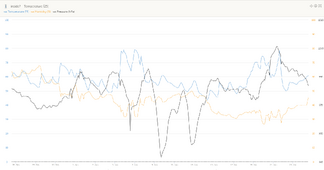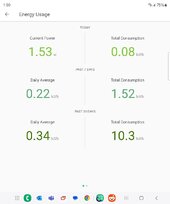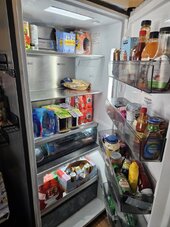RoadTurtle
Solar Enthusiast
- Joined
- Mar 30, 2022
- Messages
- 368
My Norcold has turned into a Nevercold 
.
I'm looking primarily at the conversion kit to add a compressor kit to my existing fridge. Second choice may be replacing the whole fridge with a RV specific 12v compressor fridge. Third choice might be a residential fridge. I'm leaning to 12v over 120v, but shouldn't be an issue managing either one.
Several questions, with the conversion kit, how good are they at holding temps? What is their typical 24 hr run time?
What changes have members of the tribe made, and why did you go with that type?
Not terribly worried about capacity, 600ah battery, 1200w solar.
.
I'm looking primarily at the conversion kit to add a compressor kit to my existing fridge. Second choice may be replacing the whole fridge with a RV specific 12v compressor fridge. Third choice might be a residential fridge. I'm leaning to 12v over 120v, but shouldn't be an issue managing either one.
Several questions, with the conversion kit, how good are they at holding temps? What is their typical 24 hr run time?
What changes have members of the tribe made, and why did you go with that type?
Not terribly worried about capacity, 600ah battery, 1200w solar.





